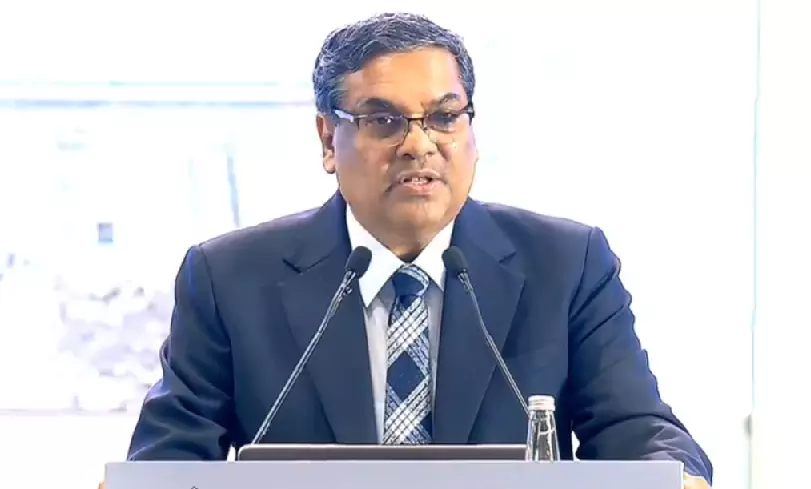
Meet Justice Sanjiv Khanna, India’s next CJI known for rulings on Electoral Bonds, Article 370
Justice Khanna will assume charge on November 11, and will serve as the chief of the expansive Indian judicial system for just a little over six months

Senior-most Supreme Court judge Sanjiv Khanna, who is set to take oath as the 51st Chief Justice of India, has been part of several landmark judgements including those related to electoral bonds and abrogation of Article 370.
Justice Khanna, who hails from an illustrious Delhi-based family and is the nephew of late former apex court judge HR Khanna, who was part of the landmark verdict propounding the basic structure doctrine in Kesavananda Bharati case of 1973.
Also Read: Justice Sanjiv Khanna appointed next CJI; to be sworn in on Nov 11
Justice Khanna will take charge from incumbent CJI DY Chandrachud. His name was recommended by CJI Chandrachud as his successor to the Centre on October 17.
He will serve as the chief of the expansive Indian judicial system for just a little over six months. He will retire on May 13, 2025.
Early legal career
Born on May 14, 1960, he studied law at the Campus Law Centre of Delhi University.
He began his legal career in 1983, enrolling as an advocate with the Bar Council of Delhi. He worked in the Tis Hazari district courts and the Delhi High Court, specialising in taxation, constitutional law, and arbitration. He served as the Senior Standing Counsel for the Income Tax Department and as the Standing Counsel (Civil) for Delhi in 2004.
Also Read: CJI Chandrachud recommends Justice Sanjiv Khanna as next CJI
He also served as the chairperson of the Delhi Judicial Academy and the Delhi International Arbitration Centre.
Elevation as judge
Justice Khanna was elevated as an additional judge of the Delhi High Court in 2005 and was made a permanent judge in 2006. He was elevated as a judge of the Supreme Court on January 18, 2019.
Also Read: Electoral bonds scheme struck down by Supreme Court ahead of LS polls
Justice Khanna is the senior-most judge after the outgoing CJI and is the executive chairman of the National Legal Service Authority (NALSA) and a member of the Governing Council of the National Judicial Academy in Bhopal.
Notable judgements
Justice Khanna has been involved in some notable judgements in the Supreme Court.
Also Read: Article 370 abrogation: SC verdict explained in simple terms
RTI Judgement (2019)
In one of his landmark judgements, he reinforced accountability within the judiciary by ruling that judicial independence is not at odds with the Right to Information.
SC’s Power to Grant Divorce (2023)
Justice Khanna affirmed the authority of the Supreme Court to grant divorce under Article 142 of the Constitution on the grounds of irretrievable breakdown of marriage in the case of Shilpa Sailesh vs Varun Sreenivasan.
Abrogation of Article 370 (2023)
He was a part of the five-judge bench which upheld the Centre's 2019 decision abrogating Article 370 of the Constitution which granted a special status to the erstwhile state of Jammu and Kashmir.
Also Read: Top court gives EC clean chit on EVM-VVPAT, says barring one no case of vote mismatch since 2019
Dismissal of VVPAT Verification Plea (2024)
Justice Khanna dismissed a plea for 100 per cent verification of VVPAT (Voter Verified Paper Audit Trail) upholding the use of electronic voting machines in elections, and said the devices were secure and eliminated booth capturing and bogus voting.
Declaration of Electoral Bond Scheme as Unconstitutional (2024)
He was also part of the five-judge bench that declared the electoral bond scheme, meant for funding of political parties, as unconstitutional.
Granted interim bail to Kejriwal (2024)
He granted interim bail to the then Delhi chief minister Arvind Kejriwal, an accused in the alleged Delhi excise policy scam cases, for campaigning in the Lok Sabha elections.
Justice Khanna will assume charge on November 11, a day after the retirement of CJI Chandrachud who has served for two years at the helm of the Indian judiciary.
The retirement age of Supreme Court judges is 65 years.
(With inputs from agencies)

